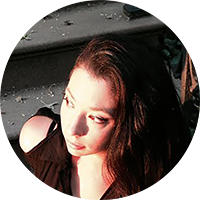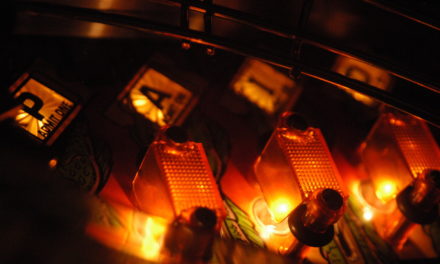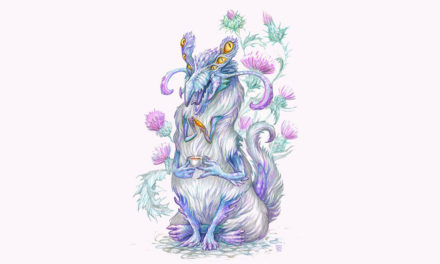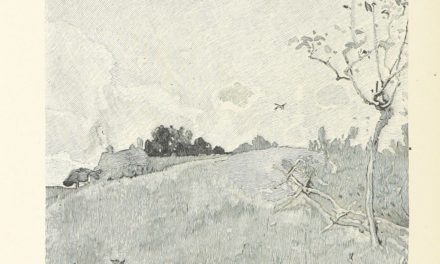Something Living
by Natasia Rose
Issue 15: Superstition | 1,617 words

illustrations of the nests and eggs of birds of Ohio. 1886. Biodiversity Heritage Library
The day we bought the parakeets was the last day I loved my mother. It was summer in Brooklyn, and we pranced down the street like we owned it, her gloved hand in mine. The heat bounced off the sidewalk and fried any exposed skin. We were wearing matching pink dresses over our CoolTek suits.
“Wouldn’t it be spec if people thought I was your clone?” I asked. There was a clone in my class at school. She got a lot of attention from the teachers, which she didn’t even care about. If I got attention, I would know how to use it. I would ask the questions that my parents wouldn’t answer. Like, was it true that there used to be only one moon? Did the sky really used to be blue? The clone never asked questions. Maybe she already knew everything. At night I would watch out the window for falling stars and wish to be a clone.
My mother laughed and pointed to her swollen belly, full of my little sister. “I think this gives us away,” she said. A little sister was almost as exciting as a clone. Most kids in my class didn’t have a sibling. Maybe when I was a big sister, I would get as much attention as the clone. Maybe the teachers would have questions for me. What is it like to be a sister? “It’s spec,” I would answer.
The dresses were trimmed in lace that scratched where it met the vent pad of my helmet. But the scratching didn’t bother me, not today. Today my mother had an idea. One that we could not tell my father about. We did not tell him about most of her ideas until it was too late. Some of them didn’t end badly. Like the time we decided to make a recipe out of a cookbook from the before times—jellied pig feet—for dinner. We rolled on the floor outside the bathroom as my father retched, stifling our giggles with our hands. The day we got mods didn’t end as well. My mother got us matching ocular implants that turned our irises into twin moons.
“For Earth’s sake, Ellie. She’s only nine. That’s way too young for mods,” my father said as he held my chin in his hand, my face tilted up so he could examine the modder’s handiwork. “Is this even legal?” My mother shrugged. After I went to bed I could hear her, screaming.
We went down a street I had never seen before, then another one after that and after that, until my head was spinning with newness. Then we stopped outside a building that looked as if someone had bitten away at it like a hangnail. It didn’t look like a shop. There was no clear glass or invitation to enter and browse. Just a rusted door. My mother knocked in a pattern. Knock knock KNOCK. Knock knock KNOCK.
The door swung open. The hall was painted a faded bacteria green, and my mother led us down a chipped black and white tiled staircase. The room at the bottom was a windowless metal box lined with rows of smaller metal boxes. The two men running the shop were tall and round with matching sets of guns slung over their shoulders. My mother seemed to grow taller, to match their height. I tried to match my mother’s posture, still holding tight to her hand.
“I audio-ed about the parakeets,” she said.
One of the men smiled and walked to a row of boxes. “Take off your visors if you want. We have clean air in here. Better for the animals.”
I flipped the switch on my neck ring, and my visor retracted. I took a sharp breath. The air in the pet shop was stuffy and smelled like my mom when she was in one of her moods and wanted us to make a nest. We would make our nest and burrow in there together. I used to be able to lay still with her for hours, all day even. Now it made my bones hurt, or I would get too hot and leave her there, alone in the nest. The air was so heavy with the nest smell that I could taste it.
The man counted underneath his breath and then pulled out one of the identical boxes.
“Come ‘round here. They won’t bite.” The man gestured to me. I crept closer, my mother’s hand still firmly in mine. Inside were two birds, the kind I had only seen on a vidscreen. They were sleeping head to tail, their little heads so small and perfect. One was pure white, and one was the color of the sky in books, streaked through with black tiger-like stripes. Thin black collars adorned their necks.
“Can I touch them?”
“Go on. Take your glove off if you like.”
I looked at my mother and she nodded. I removed the glove and put my finger on top of the sweet blue head. It was impossibly soft. I could feel the delicate skull underneath. I ran my hand along the wing and down the tail. The tail had a stiff spine, but the end was soft enough to flip through my fingers. “Are they asleep?”
“They’re in stasis. But they’ll pop up as soon as you take out the chip in the collar. If you want them to sleep, just pop the chip back in. Or throw a blanket over the cage. They’ll think it’s night. Not the brightest things.”
The men let me sit with the birds while they spoke with my mother for two hours. Or two minutes. I was lost in the birds. I imagined telling my sister about the birds as I stroked them. By the time she was old enough to handle them, I would be an expert. “This is how you feed them,” I would tell her. I could see them pecking gently at our hands. No one else at school had birds. I would be so spec. Everyone would want to sit next to me at lunch to hear the latest on what the birds were doing.
When we got home, my mother revealed an antique birdcage she had procured from somewhere. A neighbor, she said. The cage was made of a smooth polished wood that curved and looped over itself.
“But where will the baby stay?” I asked, as we maneuvered the cage into the small, windowless nook meant for the baby’s crib.
“Don’t scratch it,” she scolded.
“Oh, I know. She could stay in my room! Then we could be together all the time.”
My mother continued working in silence, her mouth set in a grim line. We set up the feeder boxes, filled with seeds that the men at the shop had given us. I couldn’t imagine something living eating something so hard and unappetizing. We set up a few long pieces of dark brown plastic that my mother said resembled the branch of a tree, like the ones birds used to live in. We put in a little swing that hung from the highest branch in the cage.
“Okay, but what do you think?” I asked when we paused to admire our handiwork.
“What do I think of what?” She was staring into the heart of the birdcage.
“That the baby could stay in my room.”
“Hmm.” She wasn’t taking her eyes off the cage.
We took the birds and released them from their little boxes into their new home.
“There.” My mother said, as she slid her hand down one of the wooden bars of the cage. We watched the birds in silence as they explored the limits of their world.
••••
Every day, I rushed home from school to be with the birds. Mom and I would lie on our stomachs, side by side, and pet the birds’ little heads and backs. We laughed at their antics and laid out little paths of seeds so we could watch them race to gobble them up. We sat in front of the cage for hours until my father came home. Then we had to pretend like they didn’t exist. I desperately wanted to tell the kids at school about the birds, but my mother asked me to keep them a secret. Just for now, she promised. It took everything I had not to blurt it out. The only thing that stopped me was the possibility of telling everyone about my baby sister and the birds all at once.
“When are we going to tell Dad?” I asked one afternoon, as the birds followed one of our more intricate seed paths through the apartment.
“Don’t worry about grown-up things,” my mother answered.
It took seventeen days. I was doing my homework and my parents were watching their vidscreens when I heard a chirp. I had forgotten to put the stasis chip back into their collars.
“What was that?”
“My homework,” I said quickly. “We’re learning about birds.”
“Birds?”
“Yes. For biology.” I caught my mother’s eye. She looked scared. My father crossed the room. It was a small apartment, and he was at the door to the nook in two quick steps. He threw open the door, revealing the cage, the chirping birds.
My father paled. “How much did we pay for this?”
She sniffed. “You paid nothing for it.”
“There is no world in which we can afford this.” His voice wobbled and it made me afraid. I shrunk against the wall.
“They wanted something living for something living.” My mother ran her hands over her belly, pressing the fabric of the loose dress tight to her body. It was flat.

Natasia Rose
Natasia Rose Langfelder is a born and bred Brooklynite. Natasia’s work has been published in The Threepenny Review, Cloaked Press, Wicked Shadow Press, Sirens Call Publications, and more. When she’s not writing, you can find her hanging out with her wife and a rotating cast of foster dogs. Read more of her work at www.natasiarose.com.




